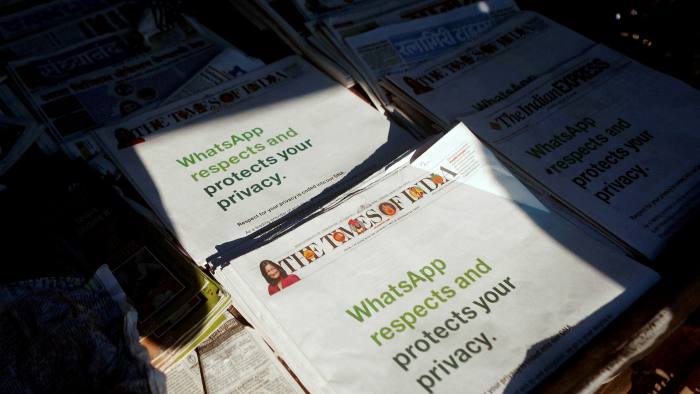
WhatsApp Sues Indian Government Over New Privacy Rules
WhatsApp has filed a lawsuit in Delhi against the Indian government seeking to block regulations coming into force on Wednesday that experts say would compel Facebook’s (FB.O) messaging app to break privacy protections, sources said.
The case asks the Delhi High Court to declare that one of the new IT rules is a violation of privacy rights in India’s constitution since it requires social media companies to identify the “first originator of information” when authorities demand it.
The WhatsApp lawsuit escalates a growing struggle between Prime Minister Narendra Modi’s government and tech giants including Facebook, Google’s parent Alphabet (GOOGL.O) and Twitter (TWTR.N) in one of their key global growth markets.
Tensions rose after police visited Twitter’s offices this week. The micro-blogging service had labelled posts by a spokesman for India’s dominant party and others as containing “manipulated media”, saying forged content was included.
New Delhi has also pressed tech companies to remove what it has described as misinformation on the COVID-19 pandemic ravaging India, and some criticism of the government’s response to the crisis, which is claiming thousands of lives daily.
While the new law only requires WhatsApp, which has half a billion users in India, to unmask people credibly accused of wrongdoing, it says it cannot in practice do that alone.
WhatsApp says that because messages are encrypted end-to-end it would have to break encryption for receivers of messages as well as the originators to comply with the new law.
“Requiring messaging apps to ‘trace’ chats is the equivalent of asking us to keep a fingerprint of every single message sent on WhatsApp, which would break end-to-end encryption and fundamentally undermines people’s right to privacy,” WhatsApp said in a statement when asked to comment on the lawsuit.
The sources familiar with the lawsuit declined to be identified due to the sensitivity of the issue.

